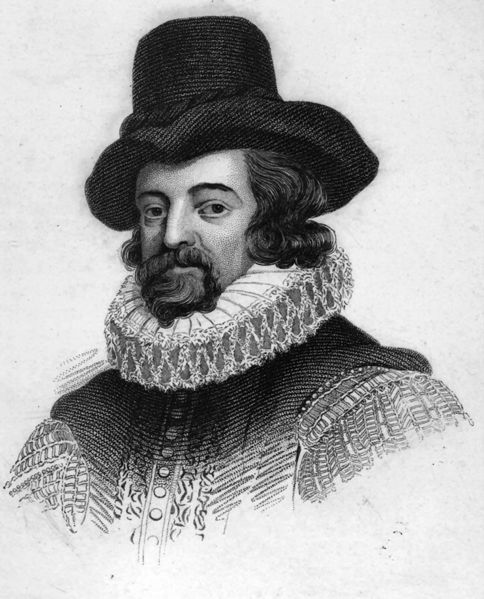Life path
Francis Bacon, the founder of English materialism and the methodology of experimental science, was born in London on January 22, 1561, the youngest son in the family of Sir Nicholas Bacon, Lord Keeper of the Great Seal. He studied at Trinity College, Cambridge University for two years, then spent three years in France in the retinue of the English ambassador. He began his professional life as a lawyer, but later became widely known as a lawyer-philosopher and defender of the scientific revolution. His works are the foundation and popularization of the inductive methodology of scientific inquiry, often called Bacon’s method. Bacon outlined his approach to the problems of science in the treatise “New Organon”, published in 1620.
In this treatise, he declared the goal of science to be increasing man’s power over nature. Induction gains knowledge from the world around us through experiment, observation, and testing hypotheses. In the context of their time, such methods were used by alchemists.
Bacon considered the great dignity of science almost self-evident and expressed this in his famous aphorism “Knowledge is power.”
The purpose of science, according to Bacon, is to increase the strength and power of people, to provide them with a rich and decent life. But Bacon also pointed out the deplorable state of science. Until now, Bacon said, discoveries were made by chance, not methodically. There would be many more of them if researchers were armed with the right method. Method is the path, the main means of research. Even a lame person walking on the road will overtake a normal person running off-road. He armed natural science with two means of research: enumeration and exclusion. Moreover, it is the exceptions that matter most. Using his method, for example, he established that the “form” of heat is the movement of the smallest particles of the body. In his theory of knowledge, Bacon strictly pursued the idea that true knowledge follows from experience. This philosophical position is called empiricism. Bacon was not only the founder, but also the most consistent empiricist. Bacon died at Highgate near London on April 9, 1626.
Some quotes





Francis Bacon’s contributions to philosophy
The text is generated using artificial intelligence
Francis Bacon (1561-1626) was an English philosopher, scientist and statistician whose ideas had a significant influence on the development of philosophy and methodology of science. His contribution to philosophy can be summed up in the following key points:
Empiricism
Bacon was one of the founders of empiricism in philosophy. He called for knowledge to be based on experience and observation of nature, and not on abstract reasoning. His work Novum Organum (1620) is a critique of Aristotle’s induction and calls for the development of a new method of scientific research based on observation and experiment.
Induction
Bacon introduced the concept of induction into scientific methodology. He distinguished between induction of the first kind (observation and generalization) and induction of the second kind (generalization based on experiments and testing of hypotheses). This approach became the foundation for the development of the scientific method.
Rejection of apriorism
Bacon criticized a priori knowledge, which was characteristic of Aristotelian philosophy. He argued that knowledge should be built on facts and experience, and not on preconceived opinions and theories.
Importance of observation and experience
Bacon called for systematic observation of nature and experimentation to collect evidence. This laid the foundation for the development of the natural sciences and the method of scientific research.
“Idols of the Mind”
Bacon identified four types of “idols,” or misconceptions, that can distort our perception of the world: tribal idols (which are related to human nature), cave idols (which depend on individual characteristics), the idols of the forum (which come from language and communication) and the idols of the theater (which are associated with philosophical systems and theories).
Francis Bacon had a significant influence on the development of scientific method and philosophy, helping to move from abstract philosophical speculation to empirical research and experimentation, which became a key feature of modern science. His works became an important stage in the development of philosophy and science during the Renaissance and the Scientific Revolution.

